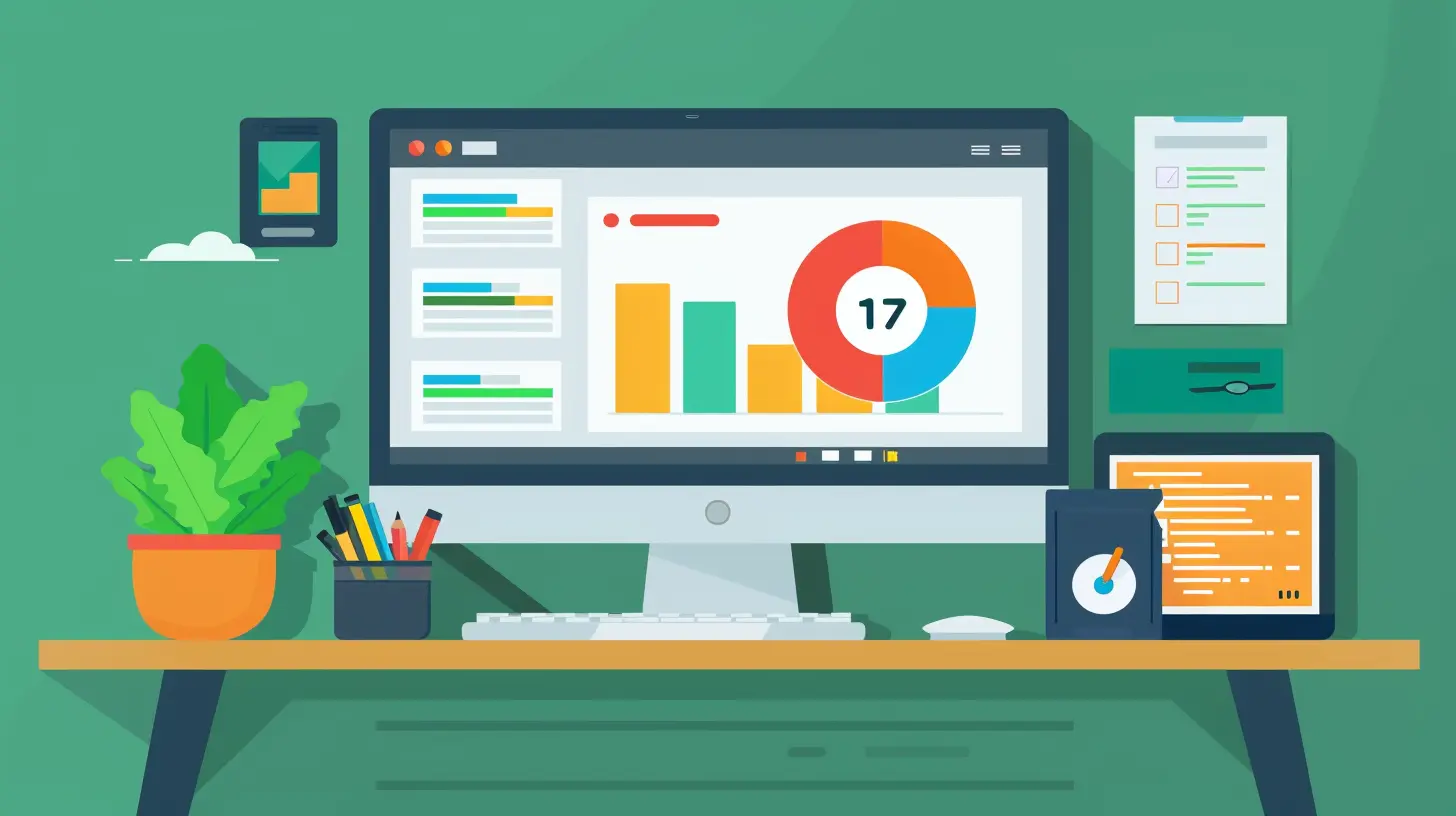The Role of Payment History in Your FICO Score
25 June 2025
When it comes to your financial health, few numbers matter as much as your FICO score. It’s the magic number that lenders use to decide whether you qualify for loans, credit cards, or even a mortgage. And at the heart of this score? Your payment history.
You might be wondering, “How much does my payment history really matter?” Well, it makes up 35% of your FICO score—making it the single most influential factor. In other words, paying your bills on time is one of the best things you can do for your credit score.
But let’s take a deeper dive into why payment history is so crucial, how it affects your financial future, and what you can do to improve it. 
What Is Payment History?
Before we get into the nitty-gritty, let’s break it down. Payment history is simply a record of whether you've paid your debts on time. This includes:- Credit cards
- Mortgages
- Auto loans
- Student loans
- Personal loans
- Retail credit accounts
- Any other line of credit
If you’ve ever missed a payment or been late, it's noted in your credit report. And unfortunately, negative marks stay on your report for up to seven years. That’s why staying on top of your payments is critical. 
How Does Payment History Affect Your FICO Score?
Your FICO score is like a report card for your financial behavior. Lenders use it to figure out how risky it would be to lend you money. Since payment history makes up 35% of your score, even one missed payment can cause a significant drop.Here’s how different payment behaviors can impact your credit:
1. On-Time Payments = Good Credit Score
Think of your payment history like a good reputation—it takes time to build and seconds to ruin. Consistently paying your bills on time shows lenders that you’re responsible, which boosts your credit score.2. Late Payments = Warning Sign
If you’re just a few days late on a payment, you might not see an immediate hit on your score. But if your payment is 30 days past due, it will likely be reported to the credit bureaus—this is where the damage begins.- 30 days late – Minor impact if it’s a one-time occurrence
- 60-90 days late – Significant drop in your score
- 120+ days late – Lender may charge off your debt or send it to collections
3. Accounts in Collections = Major Red Flag
If you fall too far behind on payments, your account could be sent to collections. This is a huge red flag for lenders, and it can tank your credit score by 100+ points.4. Bankruptcies & Foreclosures = Worst-Case Scenario
Declaring bankruptcy or losing a home due to foreclosure means years of struggling with bad credit. These negative marks can stay on your credit report for up to 10 years.
Why Lenders Care So Much About Payment History
Imagine you’re lending money to a friend. If they’ve always paid you back on time, you’d feel confident lending to them again, right? But if they’ve flaked on payments in the past, you’d hesitate—or maybe not lend to them at all.Lenders think the same way. Your payment history tells them how trustworthy you are with credit. If you've handled past debts responsibly, they’re more willing to lend you money at lower interest rates. But if you have a shaky history, you’ll either get denied or slapped with higher rates. 
How to Improve Your Payment History and Boost Your Credit Score
If your payment history isn’t perfect, don’t worry—it’s never too late to turn things around. Here are some steps you can take:1. Always Pay on Time (Even the Minimum)
The simplest way to improve your payment history? Never miss a payment. Even if you can’t afford the full balance, paying the minimum keeps your account in good standing.2. Set Up Automatic Payments or Reminders
Life gets busy, and it’s easy to forget a due date. Setting up autopay ensures you never miss a payment. If autopay isn’t an option, set calendar reminders or alerts on your phone.3. Catch Up on Past-Due Payments
If you’ve missed payments in the past, bring your accounts current as soon as possible. The longer an account remains past due, the worse the impact on your credit score.4. Request a “Goodwill Adjustment”
If you’ve been a responsible borrower but slipped up with one or two late payments, you can ask your lender for a goodwill adjustment. Sometimes, they’ll remove the late payment from your credit report—especially if you have a history of on-time payments.5. Use a Credit Monitoring Service
Credit monitoring tools help you stay on top of your score, alerting you about any changes or potential issues. Some services even offer free credit score tracking.6. Keep Old Accounts Open
Closing old credit accounts can actually hurt your score. Your credit history length plays a role in determining your FICO score, so keeping older accounts open can help maintain a strong credit profile.7. Seek Professional Help If Needed
If you’re struggling with debt, consider working with a credit counselor. They can help you create a repayment plan and negotiate with creditors if necessary.How Long Do Late Payments Affect Your Credit Score?
Late payments can stay on your credit report for seven years. But here’s the silver lining: their impact decreases over time. A late payment from five years ago won’t hurt as much as one from last month.If you focus on building a positive payment history moving forward, you can offset past mistakes and gradually see your score improve.
Final Thoughts
Your FICO score is your financial passport, and payment history is the foundation of that score. Staying consistent with on-time payments can open doors to better interest rates, credit cards, and loan approvals.But if you've had a few missteps, don’t panic. Keep pushing forward with good habits, and over time, your credit score will reflect your efforts. The key is to be proactive, stay organized, and make your payments a top priority.
Because when it comes to your financial future, every payment counts.
all images in this post were generated using AI tools
Category:
Fico ScoreAuthor:

Angelica Montgomery
Discussion
rate this article
2 comments
Jet Clarke
Payment history is crucial for your FICO score. Consistent, timely payments can significantly boost your creditworthiness, while missed payments can have lasting negative effects.
November 29, 2025 at 1:17 PM

Angelica Montgomery
Absolutely! Payment history plays a vital role in your FICO score, making timely payments essential for maintaining and improving your creditworthiness.
Phaedron Sanders
Thank you for shedding light on such an important topic. Understanding the significance of payment history in our FICO scores can feel overwhelming, but recognizing its impact on our financial health is empowering. Remember, it's never too late to improve our payment habits and strengthen our scores!
July 4, 2025 at 12:42 PM

Angelica Montgomery
Thank you for your thoughtful comment! I'm glad you found the information on payment history empowering. It's true that improving our habits can lead to better financial health!


